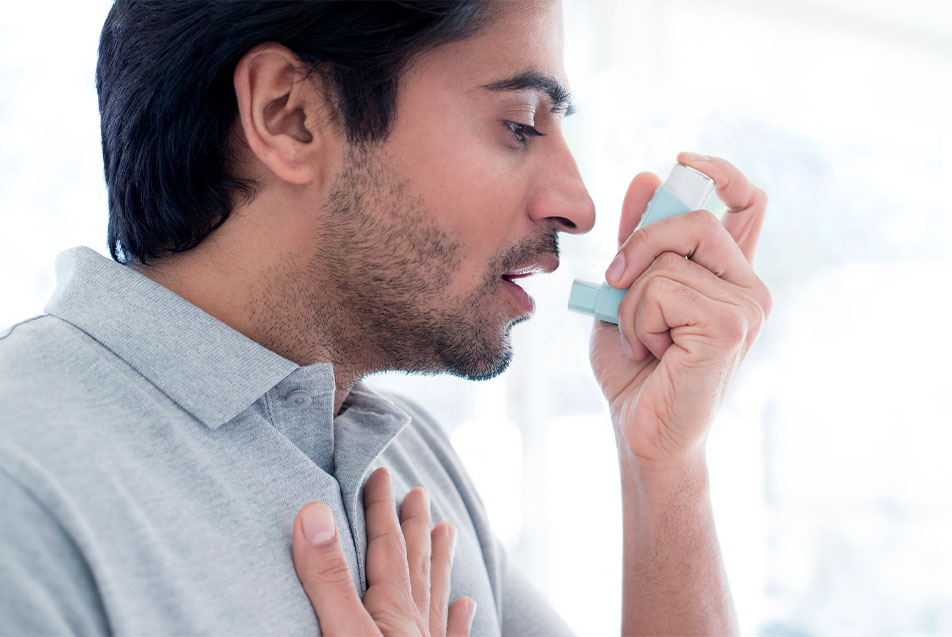
This post was written by Jan Moore, RRT-NPS, community respiratory educator, Parkview Community Nursing.
The third week of September is considered “Asthma Peak Week.” This is when asthma episodes, attacks and hospitalizations for both children and adults tend to spike, according to the Allergy and Asthma Foundation of America (AAFA).
What causes the spike?
The rise in instances is caused by a mix of factors, including ragweed pollen, rising mold counts as leaves fall and are collected, elevated dust levels and rising respiratory infections. The start of cold and flu season coincides with kids going back to school. Not only are they exposed to respiratory illnesses, but they spread them to family members, too, making September a brutal month for breathing. Not to mention, we’re in the COVID-19 pandemic that has its own respiratory implications.
Protect yourself
Here are some tips from the AAFA for protecting yourself and/or loved ones from asthma attacks during this peak week:
- Wash hands often and avoid touching eyes, nose and mouth.
- Avoid people who are sick.
- Remove shoes before going indoors to avoid tracking in pollen and mold.
- Keep doors and windows closed so allergens don't get in.
- Shower before bed.
- Use a certified asthma- and allergy-friendly air cleaner or filter.
- Have plenty of inhalers ready to go. Check them monthly to see how much medicine is left and if it's expired.
- Make sure your kids have spare inhalers at school and talk to the school nurse and faculty so they know to be ready in case of an asthma attack.
- Get plenty of sleep, stay hydrated and eat a healthy diet.
- Manage your stress level.
Integrating these steps into your day may be cumbersome at first, but before long it will become your routine. The potential health benefits make it worth the effort.
Meet with your doctor
This time of year is a great opportunity to meet with your provider and review the dosages and types of inhalers you’re using. Are they still as effective as they used to be? Have any other products come onto the market that might be a better fit? Also, discuss any long-term control medication you’ve been prescribed and evaluate whether it’s still needed.
Stock up on inhalers
Those who have been prescribed a short-term “rescue inhaler” may not need it daily, but it’s important to have them on hand in case of an asthma attack. Make it a habit to check inhalers monthly. Find out how much is left in the container and whether it’s past its expiration date. This can be life-saving information! If you have children with asthma who attend school, make sure they have spare inhalers in case one runs out or gets lost. Review school policies, speak to the nurse and your child’s teacher and come up with a plan of action to keep them safe.
Avoid getting sick
Coming down with a cold or flu may not be a big deal for some, but it can be very difficult for asthma sufferers, who already experience tightness and constriction in their airways. For them, battling a cough and congestion can be rough.
The best daily defense against illnesses is to wash hands often and avoid touching your eyes, nose and mouth. Carry hand sanitizer for when you can’t get to a sink and encourage others to give you a fist bump instead of a handshake, when necessary. Also, it might not seem very friendly, but avoid people who are already sick. If you must interact with them, one of you can wear a protective mask.
Finally, it’s recommended that those with asthma get a yearly flu shot as well as the pneumococcal vaccine. This can help prevent pneumonia and other illnesses.
Avoid asthma triggers
The AAFA states that, in addition to illnesses, “An asthma attack can be triggered by exposure to an allergen, such as tree, grass or weed pollen, dust mites, cockroaches or animal dander. Other common triggers are irritants in the air, such as smoke or chemical fumes and strong odors, such as perfume.”
Take care of yourself
This is true for just about anything, but if you’re living with asthma and/or allergies, you’ll want to take good care of yourself during Asthma Peak Week. Make sure you get plenty of rest, stay hydrated and eat a healthy diet. Managing stress is also an essential part of any strategy for managing asthma.
Of course, always be courteous of others who are also trying to stay healthy. If you come down with something, do your best to stay home. Be part of the solution, not the problem. When we all work together, we’ll get through Asthma Peak Week much stronger!



